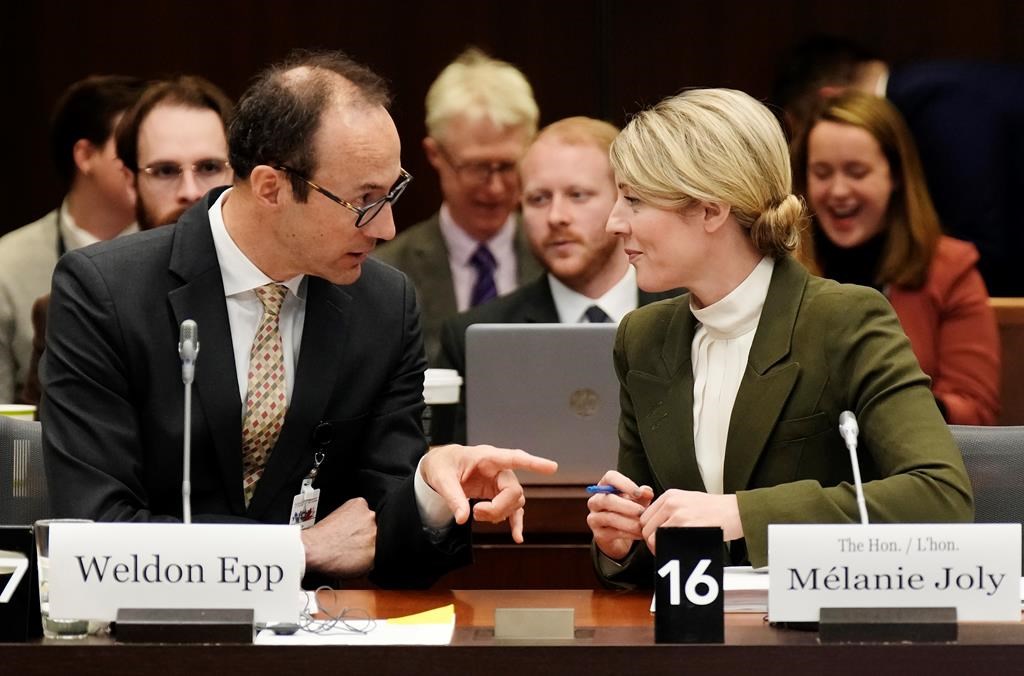Canada
Canada holds ‘workshops’ for Indian officials on rule of law amid Trudeau, Modi spat

OTTAWA — As experts urge Canada to ease the strain after Prime Minister Justin Trudeau accused India of helping kill a Canadian, Ottawa is turning to the world of slideshows and flow charts.
Canadian officials are offering their Indian counterparts “workshops” on the rule of law — at least as Canada sees it — even as tensions over Sikh separatism flare up.
“How India defines extremism or even terrorism does not always compute in our legal system,” senior bureaucrat Weldon Epp told MPs this month.
“Justice Canada has — and the RCMP in the past — done, effectively, workshops with the Indian government, to explain what our standards legally would be.”
Last June, Sikh community leader Hardeep Singh Nijjar was shot dead outside his gurdwara in Surrey, B.C., and his supporters quickly blamed India.
He, like some others in Canada’s large Sikh population, was an advocate for the creation of a sovereign state called Khalistan.
In September came Trudeau’s bombshell revelation that Canadian intelligence agencies were “pursuing credible allegations of a potential link” between India’s government and Nijjar’s death.
Canadian officials have since called for better co-operation from Indian counterparts — who charge Canada is providing little evidence.
Epp, who oversees Canada’s diplomacy in the Indo-Pacific, testified at a parliamentary committee this month that little more will emerge until the RCMP is poised to lay charges.
In November, U.S. authorities unsealed an indictment alleging an Indian diplomat engaged in conspiracy to order the assassination of another Sikh separatist. The plot was foiled, but American authorities said they found evidence of plans to assassinate Canadians including Nijjar.
Canada has had “long-standing exchanges” with India on counter-terrorism concerns, Epp said, but what New Delhi considers Khalistan extremism doesn’t always meet the Canadian bar.
For example, Canada opted twice against extraditing Nijjar to India in the past decade over claims he had a role in a cinema bombing and an alleged terrorist camp.
Since Trudeau’s accusation, India caused Canada’s diplomatic presence to thin and temporarily stopped processing visas for Canadians, with Canada halting trade talks. Heightening tensions yet more, a foreign interference inquiry in Canada listed India as a potential source of meddling.
Indian Prime Minister Narendra Modi has been more loudly urging Canada to get tough on Sikh separatism, said Sushant Singh, a senior researcher with the New Delhi-based Centre for Policy Research.
“There’s a backdrop, political and ideological, within the context of which the behaviour of the Indian government should be seen and analyzed,” he said.
Members of Modi’s own inner circle, including his national-security adviser, were shaped by waves of violence between separatist mobs and the Indian government in the ’80s, Singh said.
In Canada, some temples have openly venerated people connected with acts of violence like the 1985 bombing of an Air India flight.
But Canada insists it won’t rein in free speech.
Singh said Modi wants to send a message that India can’t be pushed around internationally, even as he consolidates power at home by clamping down on free expression and religious minorities.
“He wants to be seen as a strongman,” Singh said, especially ahead of a spring election.
“It is extremely unlikely that he will walk back or be apologetic about whatever has happened” in the Nijjar case.
If anything, part of Modi’s Hindu nationalist base supports extraterritorial assassinations.
Other Indian diplomats have been accused of conduct that runs afoul of international agreements.
In 2020, Germany convicted an Indian diplomat for spying on people advocating for Sikh and Kashmiri causes. Similar cases in the U.S. and the U.K. did not lead to prosecutions.
Still, as Canada’s allies suggest Trudeau’s allegations have merit, there has been “a significant walk-back on India’s part,” Singh said.
New Delhi shifted from outright denial to saying extrajudicial killings are not state policy.
“It actually showed that they may be worried,” he said, adding India may ultimately decide to blame the homicide on rogue elements — and, if enough pressure mounts, signal new checks and balance for intelligence agencies operating abroad.
In that context, if Ottawa is offering workshops on the rule of law, that should be seen as an attempt at constructive help rather than trying to “browbeat” or “embarrass” India, said Singh.
Vijay Sappani, a fellow with the Macdonald-Laurier Institute, said it’s time for both sides to work toward restoring diplomatic and trade ties.
They have much in common, he said — on nuclear energy collaboration, Commonwealth values and diaspora ties. Trade opportunities are rich: India prizes uranium, lentils and potash from Saskatchewan.
“Canada is the closest to India in the Western world,” he said. “The fact that we have these fights going on now doesn’t make sense.”
Sappani said the Liberals struck the right tone after the Nijjar revelation by pledging to hold further diplomatic conversations with India in private. Trying to score points with public denunciation only drives a wedge, he said.
For meaningful progress, he said, India will want “a long-term solution on the glorification of Khalistani terrorists in Canada” — and for the Liberal government to stop hiding behind free speech, as Indian politicians have accused.
Political posturing around Sikh issues to attract votes is a tactic for all political parties at all levels of government in Canada, Sappani said.
“What really bugs India is that the level of political, partisanship involvement by Canadians on issues related to India is very high.”
The prime minister should avoid unnecessarily needling India, Sappani added, as some of his comments have damaged Canada’s reputation despite having little impact.
He listed examples like Trudeau saying his cabinet has more Sikhs than Modi’s, or criticizing the Indian government’s response to farmers’ protests.
“The biggest challenge I think Trudeau may be facing in India is its perception, more than reality of what’s happening.”
This report by The Canadian Press was first published Feb. 18, 2024.
Dylan Robertson, The Canadian Press
